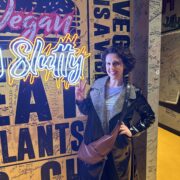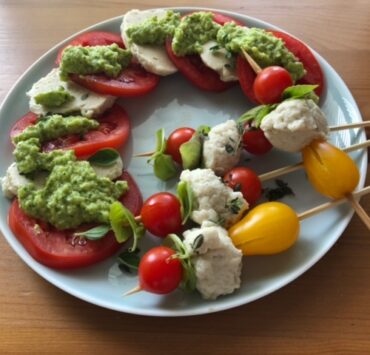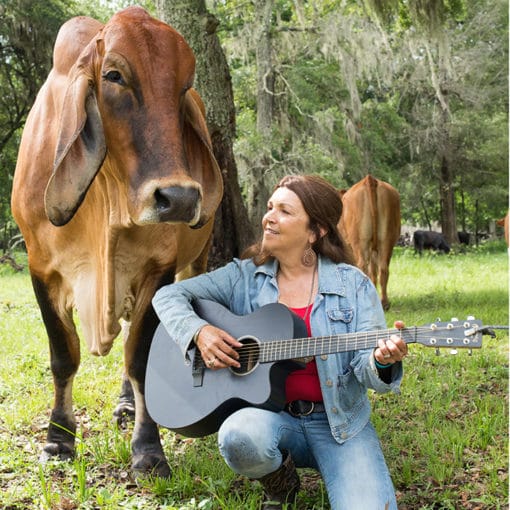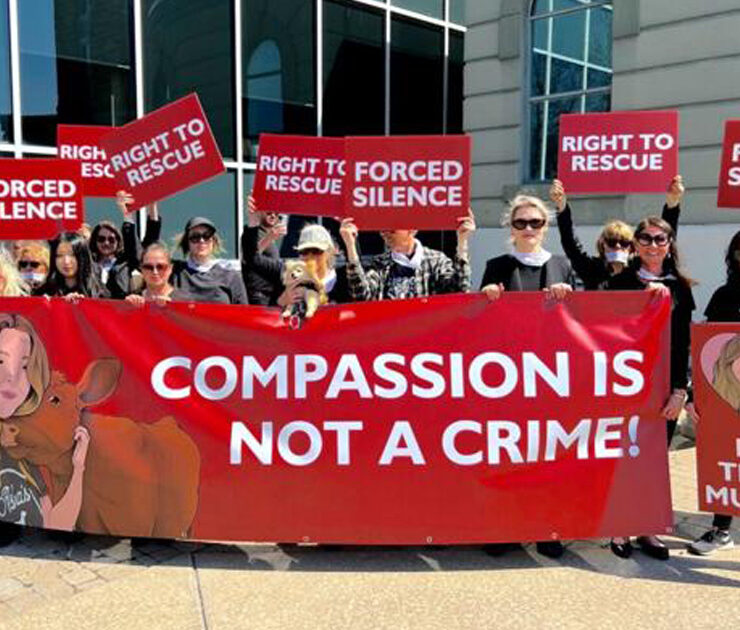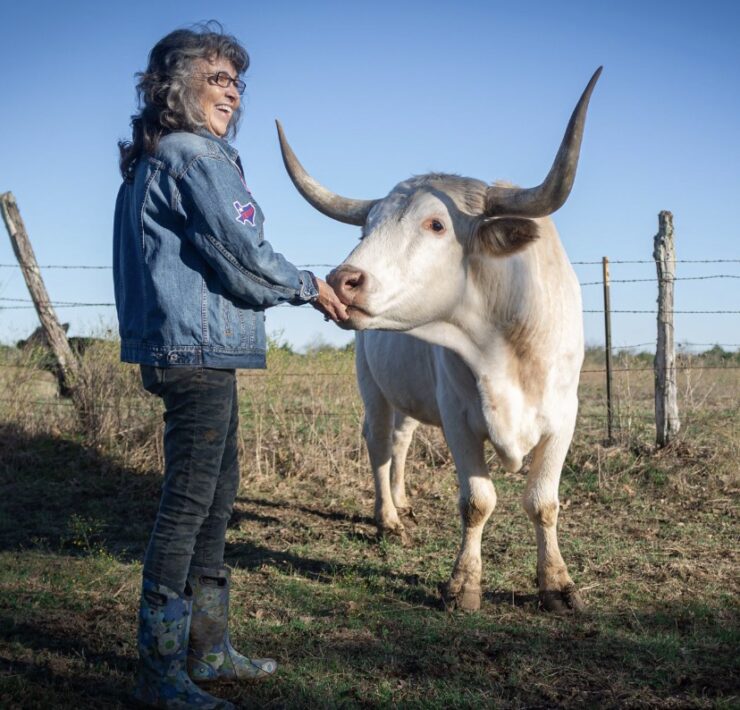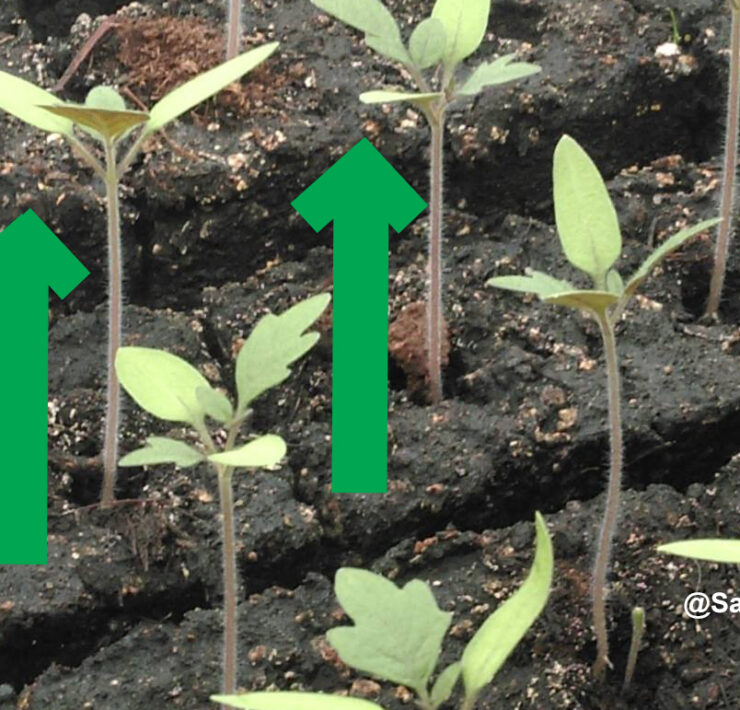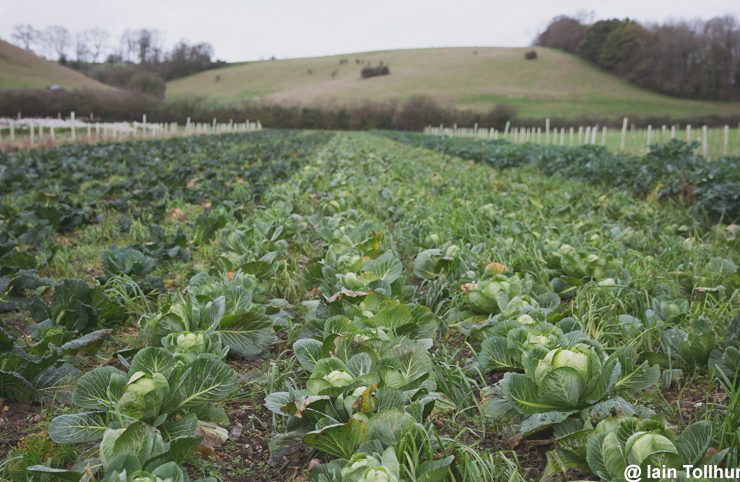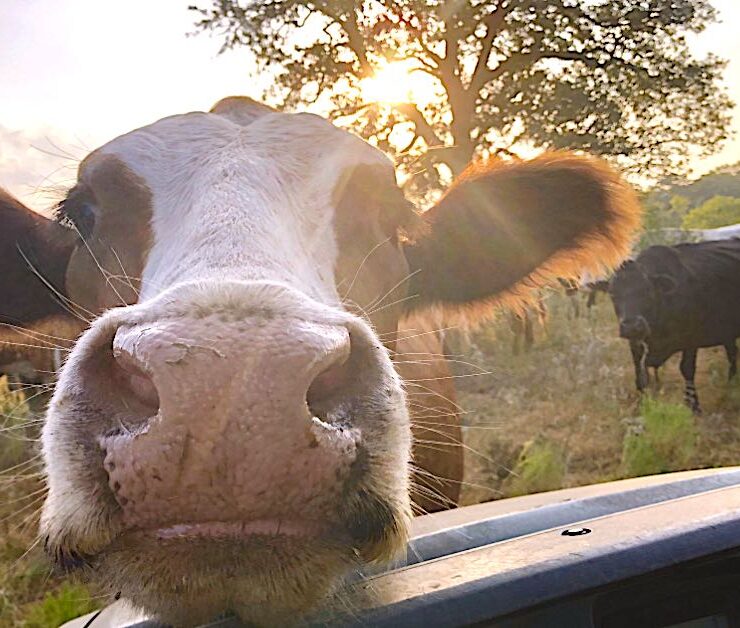Summit to Switch from Animal to Veganic Farming

The International Summit to Transition Beyond Animal Agriculture

How can ranchers and farmers thrive on their land without using animals? In the face of excruciating heat, floods, and global wildfires, this is the most crucial question of our lives. Industrialized animal agriculture is destroying the planet before our eyes. Transitioning to veganic farming is definitively one of the solutions. But how to do it? Experts must know.
On July 24th, 2021, #JaneUnchained News and the Rancher Advocacy Program (RAP) held the latest online summit of ten experts to address this issue. This is the third of a series of Summits discussing it.
Jane Velez-Mitchell, co-hosting the event, passionately illustrated why this issue is so important: “Animal Agriculture is creating this climate crisis. And now they are going through this whole PR move where they say that animal agriculture, like animal regenerative agriculture, is solving it. But, the actual solution is to transition beyond animal agriculture. It’s better for the planet and, ultimately, it’s better for business. That’s why the meat companies are creating plant-based brands. Let’s help farmers do it too.”
You can watch the full summit in the video at the end of this article, but here are the highlights of the conversation:
Getting Farmers & Companies Together to Transition to Veganic Farming

Renee King-Sonnen, founder of Rowdy Girl Sanctuary in Texas, and the Rancher Advocacy Program, also co-hosted the event.
She is the driving force behind this program and explains what they do:
“When our story about turning our cattle ranch into a sanctuary went viral, other farmers and ranchers started reaching out to us. They wanted to make a change too. With our ‘Rancher Advocacy Program’, we are looking to match farmers with companies that need plant-based ingredients for their products. Our Rancher Advocacy Program is all about making connections. Exploring possibilities to help farmers, consumers, animals, and the planet.”
Like many farmers in the same situation, making the transition wasn’t easy. There was a huge pressure to sell their animals to get some starting funds rather than spending money to keep them alive.
“What happened to me is that, ethically, I personally could not see those animals going to the food system. They had become like my dogs and cats. I started seeing them through a different pair of glasses. So, I was motivated, with everything in me, to figure out what I had to do to save the cows. Because my husband would just have sold them all. And we would not be having this conversation, frankly, had I done that. We would not have the ‘Rancher Advocacy Program’ had I done that. And my husband now says, boldly, ‘I wish I would have just given them to you’.”
One Hundred Ways to Transition Away from Livestock Farming

Rebecca Knowles is the founding Director of Farmers for Stock-Free Farming, in Scotland. She helps farmers to make the transition away from keeping livestock:
“Scotland has quite a unique situation. About 77% of our agricultural land in Scotland is permanent grassland or rough grazing. In other words, deemed unsuitable for growing crops for human consumption. And the only way they say we can make food from this permanent grassland is by grazing cattle and sheep. So, we had to address this issue.”
“What we did is to create three roads to stock-free farming so no farmer needs to be left behind, and any farmer can thrive: 1) Growing crops for human consumption. 2) Farming Carbon Capture through native trees and ecosystem restoration, or rewilding, and 3) Starting Diversification Enterprises into non-traditional agricultural activities. Maybe those related to tourism. Or adventure-based nature activities. From our three roads, we developed one hundred ways to farm stock-free, which are in our website.”
“We are even involved in a project right now to make protein for human consumption from grass. From grass, and cloves and weeds. This can be from potato leaves. It could be from sugar beet leaves.”
Giving Time for Transitioning to Veganic Farming

Laurence Candy runs Northwood Farm in Dorset, UK. He is one of the farmers Rebecca is helping to transition from dairy/beef to veganic cereal, following the Biocyclic Vegan Standard.
“I started my organic journey back in September 2019. I was looking to diversify the farm. A relatively small farm. My priority was to add value to whatever the farm sells. So, I decided to go down the organic route. At that point, my intention was to be an organic dairy farmer. At the end of last year, about November 2020, I started to look at other options, and I contacted the ‘Vegan Organic Network’. To ask advice about what other options I could do. In January this year, I met Rebecca, from Farmers for Stock-Free, and we decided to go down the veganic cereal route. The reason is: I am a grassland farmer. I have experience of growing cereals in the past, and that was the safest option.”
“In September, I will officially become ‘organic’ with the ‘Soil Association’. Then, I qualify to start the ‘Biocyclic Vegan Standard’ transition plan. That basically allows a two-year period to wind down my livestock. I only have a small number of beef animals left. And then I have a five-year period of allowing some of my sales as cash dropping. So, that’s what will help support the transition to the cereal enterprise.”
“The government should introduce a fiscal policy that actually pays farmers to scrap carbon. We’ve got this valuable resource. The soil is the largest carbon sink in the world, and we can use it. So, we’ve got to change the way politicians think, and also how the market thinks.” – Laurence Candy, farmer.
Proving that Transitioning to Veganic Farming Works

Helen Atthowe is an Organic Ag pioneer and founder of Woodleaf Farm, in Easter Oregon. Her work is a perfect example of success in transitioning to veganic farming.
“I started out in Montana. I grew up around cattle ranching. When I realized what happens to those beautiful baby calves that we pulled when mums were having trouble calving, I became a vegetarian. I started farming organically. But when I was in graduate school and I worked for Montana University, people didn’t think that we could do soil fertility and maintain yields of conventional farmers because nutrient cycling was such a challenge. But, that became very easy for me.”
“It’s taken 20 years. But now on our farm in Oregon, we have been doing the soil science research to show that not only can we do veganic farming and have comparable yields to the certified organic yield that we had when we were using manure-based compost. We found, with other research, that our system of growing our own fertilizer in place has allowed us to do both soil and habitat building. So, we have such a strong biological control system that we have been able, since about 2013, to stop spraying. Even certified organic management for insects and diseases.
“We have got as close to a closed system – no off-farm input – ecological farming than we ever hoped we could do.” – Helen Atthowe, Organic Ag pioneer.
Changing the Law to Help Transitioning to Veganic Farming

First, the visionary pioneers showed it is possible. Then, the experts helped new farmers trying it. But we also need the law to make it easy for the rest. Judie Mancuso, CEO and president of Social Compassion Legislation, USA, tries to achieve this last step by proposing new laws.
“The legislation will create a grant program for farmers who want to transition from animal agriculture to a plant-based crop. There are so many benefits. Everyone knows what we are up against with the climate crisis. We heard across the US, across California, how our farmers have such a hard time with transitioning, monetarily. To be able to bring a RAP program through them. But we run into a lot of opposition. All the Animal Ag came after us. But the Bill is still alive, and it comes back in January.”
“One of the things we have to do – and so many people don’t like to do it, but they have to – is to speak to their representatives. We need people to take politics very seriously and be part of that system too. Because we need it. These industries have been shifting money from the beginning of time. It is time to shift this paradigm.”
“That’s why we have to change laws. That’s why we have to shift subsidies. Yes, it would be nice to replace the system, but we’ve got to know how to work in it, and get these changes now” – Judie Mancuso, Social Compassion Legislation.
Preserving Wildlife Is Also an Option for Landowners

If not moving into plant agriculture, transitioning into something else may also do. For instance, into wildlife preservation. Nicole Rosmarino, Executive Director of Southern Planes Land Trust, Colorado, has done that.
“In this conversation, it is transitioning animal agriculture into something else. And for us, it’s a wildlife preserve.”
“We started over 20 years ago with just a 280-acre preserve. We bought the land from a rancher. No cows are allowed on that property. Absolute bright line against any wildlife killing. We named it ‘Fresh Tracks Nature Preserve’ in honor of the fresh wildlife tracks we saw in the snow on our first visit. Fast forward to now, we have 32 thousand acres in our preserve network. Our largest is ‘Heartland Ranch Nature Preserve’, which is about 25 thousand acres. To put that in perspective, it’s larger than any one of Colorado’s state parks and several national parks. And even five countries.
“We partnered with a grantmaker: the ‘Summerlee Foundation’. They have rescued longhorn cattle, horses, donkeys, and bison. They rehomed all of those animals, but they brought us the bison and the longhorn cattle. And these are non-breeding herds, and they are living their lives in a sanctuary. The bison aren’t breeding because they are not genetically pure, and they do not serve conservation.”
“There are opportunities for this work to proceed right now by linking it to two dynamics in particular: one is the carbon market, and the other is the call for 30 x 30. Protection of 30% of Earth’s ecosystems by 2030.”– Nicole Rosmarino, Southern Planes Land Trust.
Transitioning to Veganic Farming Farming In Our Cities

It’s not only in rural areas. We also need to involve towns and cities. Tiffany Washington, the founder of Dobbin-Kauv Garden Farm, Austin, Texas, is doing it.
“I am a black farmer in the State of Texas, in a city where farming for us was taken away purposely. So, to be able to come back to agriculture, I don’t look at all the animal farming and all this different stuff. For me, it’s about being a part of Nature. It’s about taking care of Earth, it’s about the climate.”
“We need to make the connections. Because I am hearing everybody, and I am thinking to myself, ‘I do this on a day-to-day basis in my community. I have a small-scale urban farm. It’s about one and a quarter acres. So, I am not able to grow a lot of food, but my goal is to help the environment and help the climate by recreating forest spaces. I am going to try to create these full forests alongside my farm. And I utilize local food waste.
“There are so many things we can use outside of animal byproducts when it comes to our compost. Especially inside our cities.” -Tiffany Washington, Urban farmer.
There Is Demand for Veganic Agriculture

Dominick Thompson, founder of Eat What Elephants Eat, in Atlanta, Georgia, is also addressing the issue from an urban perspective. Growing plants, and selling food produced from them:
“There is such an explosion of the demand that we can’t even keep up. It’s a beautiful thing because people do want to eat more plant-based. Even if they are not technically vegan or vegetarian, most people are taking more of the reducetarian approach. At least this is what we are seeing in studies. At least is what we are seeing in our demographics, specifically. We have over 10,000 subscribers.”
“Atlanta is trying to grow the urban farming space specifically… We plan to acquire some urban farms and open up a bunch of juice smoothie bars. We are opening up some veganic farming in the city of Atlanta.” – Dominick Thompson, entrepreneur.
Changing the Entire System Is the Ultimate Goal

We should not forget the bigger picture, and Dr. Sailesh Rao, founder and Executive Director of Climate Healers, was the perfect panelist to remind us of it. He has a whole project to transition the culture to plant-based by 2026. You can follow it in the documentary Countdown to Year Zero.
“We have to think of this as a transition process from the old to the new. And the new system will be a food forest, it will be wild animals. And there will be a few animals in sanctuaries.”
“We need to build a new system based on the correct axioms. The first axiom is: inner peace, the pursuit of happiness is better accomplished by seeking it within ourselves. We need to teach that to children. We need that to be the foundation of the new system. The second is the axiom of unity, that all life is one family, in which each brings our unique skills.”
“To give what we can, to seek what we need, and become what we are.” – Dr. Sailesh Rao, Climate Healers.
Bringing Marginalized Communities on Board

Both Tiffany and Dominick had lots to say about marginalized communities in the process of transitioning to veganic farming. Tiffany stated:
“When we talk about communities of color we talk about marginalized people… We are talking about food deserts. They don’t have access to fresh fruits and vegetables to even be vegans.”
“So, when we are talking about doing all this stuff, of course, we can do it and we can make it happen, but we need to bring in a new generation of farmers. We need to bring in farmers of color.”
Dominick weighed in:
“Yes, we have a lot of food deserts. But we are also allowing these businesses to come into our communities that continue to promote poison – whether we are talking liquor stores, fast food restaurants and more – into our black communities. And a lot of us have been conditioned to believe that animals, specifically, are food. And they are not.”
“When you buy from animal agriculture, you are supporting environmental racism.”– Dominick Thompson, founder of Eat What Elephants Eat.
This is a Global Problem that Needs an International Approach

The harm caused by Animal Agriculture goes beyond the animals and the environment. It also harms countries and entire cultures. Dr. Rau knows that well:
“That is colonialism 1-0-1, what they are doing with dairy. Because 70% of Indians are so-called lactose intolerant – I really call it lactose normal. The term ‘lactose normal’ was coined by Lauren Ornelas, founder of the Food Empowerment Project. We cannot digest lactose. And yet dairy has been pushed on Indians. Dairy has been pushed on the Chinese when even 80% or more are lactose intolerant – lactose normal. This is just colonialism. Making people eat food that is going to make them sick so they can become customers of the pharmaceutical industry. This is why India has become the diabetes capital of the world right now. Bad food is being pushed on Indians.”
Jane also expressed her aspirations: “I do hope that, in some world, we can marry people who are hungry and desperately needing good food – vegetables, nuts, greens and legumes – and the farmers who desperately need to start making those products. Get them together. And that’s all we are trying to do here.”
“So many farmers had a tremendous amount of land. And I guess the ideal solution would be to be able to use a small portion of that land in a very profitable way. And there is also solar, and wind. There are lots of things that can be done in that small piece of land, and then rewild the rest. That would be the ideal.”
“I believe that the animal agriculture system is like a house of cards. If you pull one thing from it, it collapses.” -Jane Velez-Mitchel, Jane Unchained News.
Working Together to Help Transitioning to Veganic Farming

Many of the panelists agreed that working together is key. These are some of their comments:
Tiffany: “We have to start meeting each other and sharing these ideas and resources, so we can do the work we all know needs doing.”
Renee: “We have to put principles before personalities. If we are going to do this, we’ve got to be able to come together. We’ve got to figure out how to create this new system. And a system, by the way, that doesn’t have to send these cows to slaughter during the transition.”
Dominik: “We have to realize, as a group of people in this panel and people listening to this, that there are eight billion people in this world. That means that we are all going to wake up tomorrow with eight billion perspectives and points of view. Some people are religious, spiritual, Christians, Muslims, atheists and more. We have to understand that not everybody is going to be uniform in their thoughts.”
“We have to work together to hopefully understand each other’s way and to get along. Because we only have one planet, one shot, and one life.” – Dominick Thompson, founder of Eat What Elephants Eat.
What Should We Prioritize First?

The experts know their priorities.
Rebecca: “We need to lobby the government, but we also need to grow this movement out horizontally. This movement of small farmers who are farming without livestock. We need to get rid of the livestock and let the earth regenerate itself.”
Laurence: “This is going to be consumer-led. It is a consumer problem. The demand for cheaper animal products. This is the reason we are in the mess today. It is up to consumers to educate themselves. They’ve got to be able to identify sustainable farming systems. And veganic farming is the ultimate number one sustainable system.”
Helen: “Right now, ‘regenerative agriculture’ with animals has the ear of most representatives. That’s the way it is, and we have to change that. And one of the ways is to talk about plant-based fertility systems in terms of no-till. Because no-till – minimum soil disturbance – is also in everybody’s mind. One single thing we should be doing with the Farm Bill is pushing cover crops.”
Dr. Rao: “Now is the time to reduce our footprint and give the land back to nature so it can start healing. If the world goes plant-based, we can literally return 80% of the surface back to nature. To me, this is the number one thing we should be doing now to address climate change and biodiversity loss. To address all ecological problems that are happening. And the clock is ticking.”
“We need to look at all the resources we have that we are applying as a way of transitioning from the old to the new. In five years, either it’s going to be a completely different model, or we all will be dead. This is the choice we have.”– Dr. Sailesh Rao, Climate Healers.

What's Your Reaction?
Jordi Casmitjana is a vegan zoologist and author.

